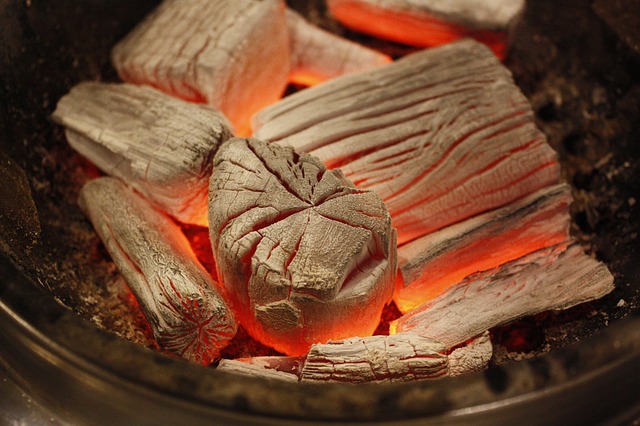Situated in the Pacific Ocean, amidst Hawaii and California, a colossal aggregation of 79,000 metric tons of plastic has amalgamated to form the Great Pacific Garbage Patch. Bound by the swirling sea currents and covering an expanse of approximately 1.6 million square kilometers — almost double the area of Texas — this massive patch stands as a glaring evidence of anthropogenic pollution. It presents a substantial threat to aquatic life, claiming the lives of up to 1 million seabirds and 100,000 marine mammals annually due to plastic consumption or becoming ensnared in plastic debris.
Nonetheless, while the Great Pacific Garbage Patch poses a threat to certain species, it is simultaneously enabling others to thrive. As documented in a study released in April 2023 by Nature Ecology & Evolution, a cross-disciplinary team of researchers recovered 105 plastic fragments from the patch, only to discover barnacles and bryozoans adhering to objects such as toothbrushes, garment hangers, and shampoo containers. The plastics served as miniature vessels, providing transport for coastal organisms and pelagic species alike, enabling them to venture far beyond their usual shallow coastal habitats.
Typical coastal hitchhikers comprised of amphipods, isopods, hydroids, and bryozoans, hailing predominantly from the northwest Pacific. A substantial number of these coastal species likely drifted out to the open sea as detritus from the 2011 Japan earthquake and ensuing tsunami. Not only did these resilient animals endure the voyage to the garbage patch, but the presence of crustacean larvae and anemone buds evidence their capability “to flourish, persist, and multiply in the pelagic realm, thanks to synthetic pollution,” proclaims the study’s contributing author and zoologist of invertebrates, Henry Choong of Royal BC Museum in Victoria, Canada. He explains that the plastics furnish them with a “long-lasting, non-degradable ‘dwelling.'”
This discovery poses a challenge to our prior notions about marine dispersal and adaptation, as per the study’s contributing author Matthias Egger, an environmental expert at the Ocean Cleanup, a Dutch nonprofit dedicated to purifying the oceans from plastic. His interpretation suggests that in historical times, “the absence of driftwood curtailed the settlement of the pelagic zones by coastal organisms, not the organisms’ physiological or ecological limitations,” states Egger.
Albeit seemingly beneficial, the implications of such developments could be dire. “The subtropical gyres are often dubbed the deserts of the oceans, owing to their scant nutrient levels,” clarifies Egger. “Consequently, coastal species are now contending with indigenous pelagic species for scarce sustenance, and there’s evidence of them preying upon pelagic species as well.”
The long-term consequences of coastal species establishing themselves in the high seas and affecting the native pelagic ecosystems remain uncertain, Egger remarks. “Nonetheless, historical events have illustrated that the ingress of non-native species can profoundly alter native ecosystems.”
However, plastic isn’t the sole conduit for the transfer of organisms across different habitats. “Debris has always been present in the oceans, not all being man-made,” observes Casey O’Hara, a lecturer and researcher in conservation data science at the University of California, Santa Barbara, who contributed to a prognostication of the future of marine environments as published in the 2022 Annual Review of Environment and Resources. “Consider tree trunks carried by rivers into the ocean. Such natural flotsam can also gather similar organisms and is likely to end up in comparable gyres,” he elaborates.
Yet, “plastic distinguishes itself with its proliferation, its substantial buoyancy, and its gradual disintegration — factors that may lead to the wider spread of such synthetic waste,” notes Andrey Shcherbina, a marine scientist at the University of Washington and a study co-author. Unlike timber which decays over time, plastic can traverse the global seas, transporting various creatures to delicate ecosystems such as Hawaii’s Papahānaumokuākea Marine National Monument, a common landing site for debris from the garbage patch.
While these recent insights have elucidated some effects of plastic on marine life, they have also propelled more inquiries. Going forward, Choong mentions, the team intends to probe whether the coastal stowaways become an integral element of pelagic ecosystems and what impact they might have on the indigenous marine inhabitants.
10.1146/knowable-111323-1
Tim Brinkhof is a journalist and investigator from the Netherlands, working out of New York. A New York University alumnus, his writings on science and technology have been featured in Big Think, Freethink, and JSTOR Daily. This narrative initially featured in Knowable Magazine, a standalone journalistic project by Annual Reviews. The primary article is accessible here.






